Conference 2025

Registration

Click here for Event Registration
Registration costs:
Waged: $250.00 pp
Unwaged: $100.00 pp
Multi (2- 4 attendees from the same organisation): $220.00 pp
Group (5+ attendees from the same organisation): $200.00 pp
For all Multi/group registrations are available, Please enquire to mirroradmin@mirrorservices.org.nz.
Please be aware that registrations will not be confirmed until your payment has been received.
Please note there will be no refund for any cancellations received after 9th May 2025.
Conference Programme
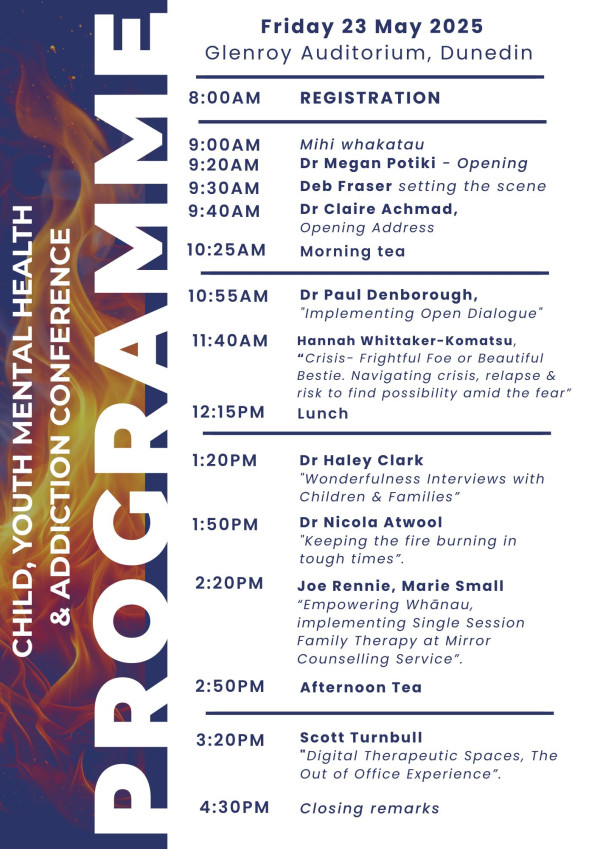
Accommodation discounts with Scenic Hotel Dunedin
Scenic Hotel Dunedin City features a stunning contemporary, award-winning design, with spacious guest rooms, modern facilities and attractive local artworks all in a handy inner-city location.
Stay in the heart of the city, just a short walk to the Octagon, Scenic Hotel Dunedin City is within walking distance of many of the city’s main attractions, great restaurants and shopping centres and the Conference venue. The hotel is located on the corner of Princes Street and Dowling Street.
Information for booking:
Discounted Standard/Superior room: $189.00 (BB1)
Stay Dates: 20-26 May 2025
Sales Dates: 24th April until 22nd May 2025
Cancellation: 7 Days
Use promo code: LIGHTING
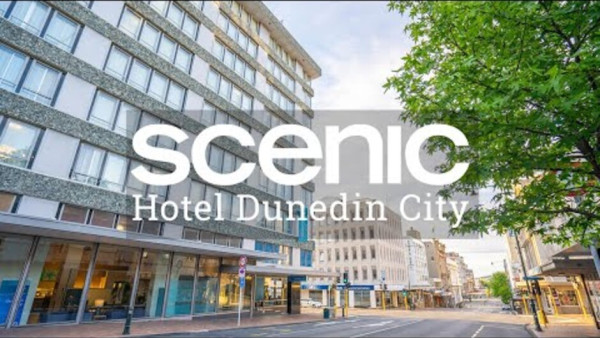

Dr Claire Achmad, Chief Children's Commissioner
Dr Claire Achmad is a recognised advocate for children in Aotearoa New Zealand and internationally, having worked in a wide range of areas relating to children's rights, including from legal, policy and practice perspectives. Claire was appointed as the Deputy Chair of the Children and Young People's Commission from 01 July 2023, and from 01 November 2023 took up the role of Chief Children's Commissioner and Chair of the Commission for a total term of five years.
From March 2021 - to September 2023, Claire served as Chief Executive Officer of Social Service Providers Te Pai Ora o Aotearoa, and in that role championed the aspirations and outcomes of children, rangatahi and whānau and community-based social service providers, strongly grounded in a focus on equity, and working closely with social services organisations throughout the motu.
Claire holds a doctorate in international children’s rights law from Leiden University, the Netherlands, and has published internationally on a range of children's rights issues. She also holds degrees in Arts and Law from the University of Auckland and is a University of Auckland 40 Under 40 Honoree. Previously, Claire has worked for children’s NGOs and international organisations in Aotearoa, Australia and Europe, held a senior role within Te Kāhui Tika Tangata the New Zealand Human Rights Commission, and practised as in-house legal counsel in the New Zealand government. She was admitted as a barrister and solicitor of the High Court of New Zealand in 2007.
Claire was born and grew up amongst kauri and kererū in the Waitākere Ranges, went to school in West Auckland, and is of New Zealand and Indonesian heritage. Claire holds a Guest Lectureship in the Child Law Department of Leiden University and is a member of the Asia New Zealand Foundation Leadership Network.
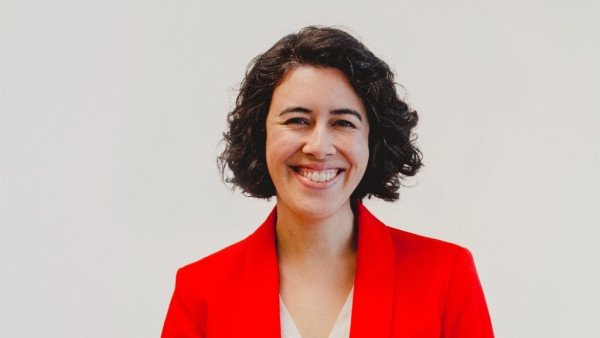
Dr Megan Potiki
Tēnei te rūrū te koukou mai nei
Kihai mahitihiti
Kihai marakaraka
Te ūpoko nui o te rūrū
Terekou!
Ko Pukekura te mauka, ko Ōtākou te awa moana, ko Ōtākou hoki te kāika. Ko Taiaroa rāua ko Karetai ōku tūpuna. I ahu mai au i te whānau Ellison. Ko Megan Pōtiki ahau.
I hail from Ōtākou and whakapapa to Kāi Tahu, Kāti Māmoe Waitaha and Te Ātiawa iwi. I am currently straddling two roles: The Co-Executive Director for Te Pukenga, Region 4, and I am also the Executive Director for the Otago Polytechnic. I have completed my PhD on the death of te reo Māori at Ōtākou, and my research interests are also focused on the loss of te reo Māori and the written Māori archives of the past that have a particular geographical focus on my tribal region of Kāi Tahu.
I have been pulled in a number of different directions in the last few years and have been contracted by Aukaha Ltd to provide cultural support, write narratives and guide tikanga and te reo while instilling our values into design, building and development.
I prioritise my children and my whānau, hapū and iwi. I was raised at the Kaik and live there, and there is no question about my commitment to Ōtākou, Dunedin and Otago with a particular passion in education and leadership.
Dr Paul Denborough - Alfred Hospital Child and Youth Mental Health Service
Dr Paul Denborough is a Psychiatrist known for his innovative style in transforming mental health services. With twenty years of extensive experience working in the public health system, he is the Clinical Director of Alfred Hospital Child and Youth Mental Health Service and is responsible for over 200 staff.
Paul has a successful record of leadership, clinical work, teaching, research and working closely with community agencies. He has a strong commitment to best practice, particularly in the youth psychiatry field. He is well recognized for implementing progressive programs and culture change within the mental health system including working with carers to improve family-sensitive practice and implementing a groundbreaking youth early psychosis service implementing resources like the Discovery College and a client-led needs adapted practise.
Paul developed the first Headspace Centre in Australia in 2007 and in 2019 he contributed to the Victorian Mental Health Royal Commission. His specialisation in eating disorders at Alfred CYMHS encompasses a multidisciplinary team including nursing, dietitian, and family and youth peer workers.
Paul has three children: two sons aged 23 and 20 and a daughter 16. He brings a strength-based and solution-focused approach to helping alleviate the mental distress of young people and families who are referred to the service.
Hannah Whittaker-Komatsu
Hannah Whittaker-Komatsu celebrates life outside the box. Her journey into Peer Support began at 22 as a Peer Educator at the New Zealand Prostitutes Collective. Since that time, Hannah has journeyed alongside people in a variety of lived experience spaces and roles. Her thirst for understanding the human experience led her to train as a social worker, however, she believes the most useful knowledge she has gained is that which is societally undervalued and most often completely unacknowledged; the purposeful and intentional processing of one’s own life. A pivotal step in her healing journey has been identifying what was called ‘disorder’ and ‘disease’ were in reality beautiful survival strategies.
As the Programme Director Lived Experience, within Manatū Hauora (Ministry of Health), Hannah supports the Mental Health and Addiction Group to connect to Lived Experience perspectives and movements. In her spare time, Hannah developed Thriving Madly, a creative mutual support community that creates spaces for connection and opportunities to craft wisdom that supports us to collectively weather the storms of life.
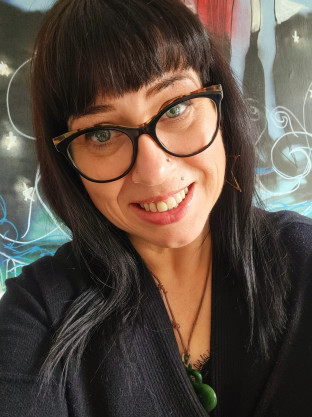
Dr Haley Clark
Dr Haley Clark is a registered social worker and delivers the counselling in schools programme for Mirror Services in Southland. She is a contractor for Stop and ACC. Haley has a PhD on the topic of sexual violence and justice and has worked in research and practice in the field of sexual assault and families for over 20 years. Haley is committed to her practice as a narrative therapist and has participated in the narrative therapy apprenticeship offered by David Epston, Kay Ingamells, and Tom Carlson for several years. She is from Melbourne and lives in Invercargill with her nine-year-old twins. At this year's conference, Haley presents "Wonderfulness Interviews with Children and Families". Wonderfulness enquiries were invented by David Epston, the co-founder of narrative therapy, as a means to get to know the person through the lens of their moral character rather than through the lens of the problem. Wonderfulness interviews provide a way into stories of the self that are founded on a person’s preferred identity rather than problem-saturated stories of self. Drawing from interview questions from her practice, Haley will demonstrate the ways that these interviews bring forth young people’s virtues as the foundation for therapeutic conversations. She suggests that a person’s wonderfulness can be used to restore honor and to promote connection and dignity within families.
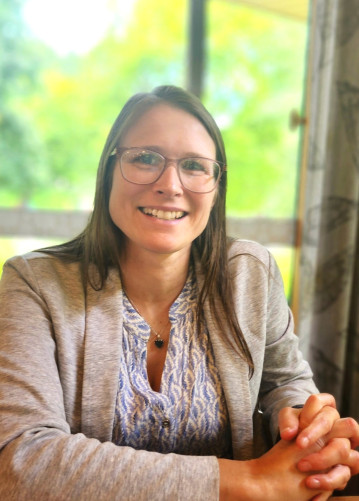
Dr Nicola Atwool
Dr Nicola Atwool is an independent contractor offering supervision, training, and consultation. Throughout her career she has worked with tamariki, rangatahi and their whānau experiencing adversity and has a particular interest in trauma-informed practice. Her research has focused on attachment, resilience, the impact of trauma, the experience of children in care and social work intervention with tamariki, rangatahi and their whānau. Her goal as a researcher and educator is to bridge the worlds of practice, policy and academia.
Nicola has an extensive career in social work starting in 1977 in Porirua after completing a Master in Social Work at Victoria University. She also completed a Bachelor of Social Sciences at Waikato University, a Post-graduate diploma in Child Psychotherapy and a PhD from Otago. She worked for what is now Oranga Tamariki for nearly 20 years in a variety of roles including social worker, supervisor, social work educator and child psychotherapist in specialist services in Dunedin. Nicola moved into an academic role in 1994, working as a lecturer and senior lecturer in the Social and Community Work programme at the University of Otago. She spent six years as a Principal Advisor in the Office of the Children's Commissioner from 2006 to 2012 before returning to the Social and Community Work programme at the University. Nicola worked as a senior lecturer and Associate Professor, finishing her time with them in December 2022.
Nicola is Chair of the Family Violence Death Review Subject Matter Expert Committee and has been a member of several advisory groups for Oranga Tamariki. She is a registered social worker and a member of ANZASW.
Nicola identifies as Tauiwi Pākehā and having moved around Aotearoa during her early years she now calls Ōtepoti home. She and her partner raised two sons and now have four mokopuna.
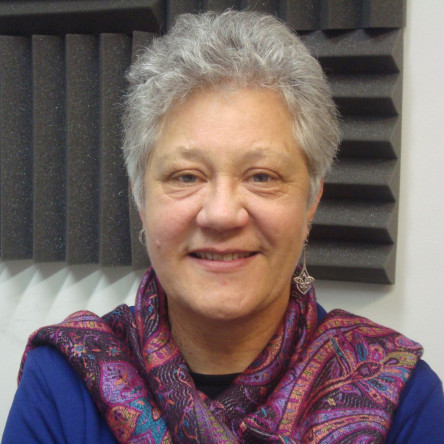
Marie Small
Kaihautū Oranga / Kaiwhakamahereora | Co-Clinical Team Leader – Mirror Counselling, Child & Adolescent Counsellor
Marie Small is the Co-Clinical Team Leader at Mirror Counselling and a registered Occupational Therapist with a strong foundation in community mental health. She brings over a decade of experience to her role, working with tamariki, rangatahi, and their whānau across a variety of settings. Marie is passionate about fostering wellbeing and resilience in young people and draws on a holistic, client- and whānau-centred approach in her practice. Originally from Wellington, Marie relocated to Ōtepoti Dunedin to study Occupational Therapy and has since made the region her home, raising her teenage son here. Her professional journey began in adult community mental health, before transitioning into youth-focused work, where she found her true calling. She also spent several years in the private rehabilitation sector, specialising in chronic pain programmes, further broadening her therapeutic skill set.
Marie values the kaupapa of Mirror Services and is continually inspired by the opportunity to work alongside young people and their families, supporting their healing and growth. Marie has a Bachelor of Occupational Therapy and is a member of the New Zealand Association of Occupational Therapists (NZAOT).
Joe Rennie
Kaiwhakamahereora | Child and Adolescent Mental Health Clinician
Mental Health Nurse & Trainee Family Therapist
Joe Rennie is a Mental Health Clinician at Mirror Counselling, specialising in child and adolescent mental health. A registered nurse with a background spanning various roles in the social services sector, Joe brings a wealth of experience and a strong commitment to whānau-centred care. His practice is grounded in the belief that whānau are vital sources of strength, resilience, and healing in a young person’s recovery journey.
Joe’s professional pathway began in broader social services before narrowing his focus to working with tamariki, rangatahi, and their families. He is a strong advocate for systemic and relational approaches to care and is currently completing a Master’s degree in Clinical Family Therapy. His academic training is complemented by postgraduate qualifications in both Mental Health Nursing and Family Therapy.
At Mirror Counselling, Joe has been instrumental in the implementation of Single Session Family Consultation (SSFC), an innovative model that enhances family engagement and support within therapeutic settings. His work continues to explore how whānau can be empowered as active partners in supporting young people navigating complex and uncertain environments.
Joe and Marie will present Empowering whānau: implementing single session family consultation at Mirror Counselling. Marie and Joe will share insights into Single Session Therapy, discuss how SSFC has been implemented at Mirror Counselling, and highlight the positive outcomes it’s had for their clients, whānau, and team.
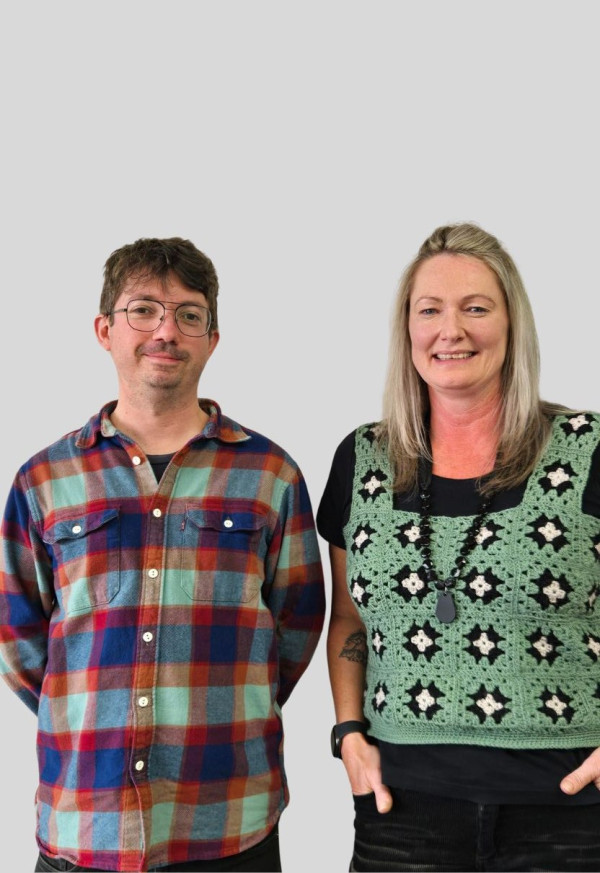
Scott Turnbull
Scott Turbull is a CEP Clinician working at Mirror HQ, where he has been working with young people and their whānau since 2017. Before this, he had worked in the Waikato in related mahi since 2010. Scott has a particular interest in working with gamers, which has led to the development of a digital therapeutic environment software, which started in 2020. Scott is a DAPAANZ registered Addiction Practitioner and Accredited Clinical Supervisor, having completed a Post-Graduate Certificate in Health Sciences in Alcohol and Drug Studies at the University of Auckland in 2013.
Scott will present: “ Digital Therapeutic Spaces – The ‘Out of Office’ Experience”. Some of the most anxious young people we meet as clinicians are the loudest online. Some young people who are experiencing difficulties seek comfort in gaming. These same young people can find it very difficult to engage in therapeutic discussions.
Considering the concept of lighting fires, we find that many young people are ignited by gaming. How can we move toward their source of fire and make use of the fires that are already lit to illuminate other areas?
This presentation explores our recent experience of developing and trialing the use of a digital therapeutic space to assist with engagement in counselling interventions, placing a particular focus on young people who are gamers.
This presentation will include an overview of our experience in this area, followed by a live demonstration of the digital therapeutic space we have named “Out of Office”.
